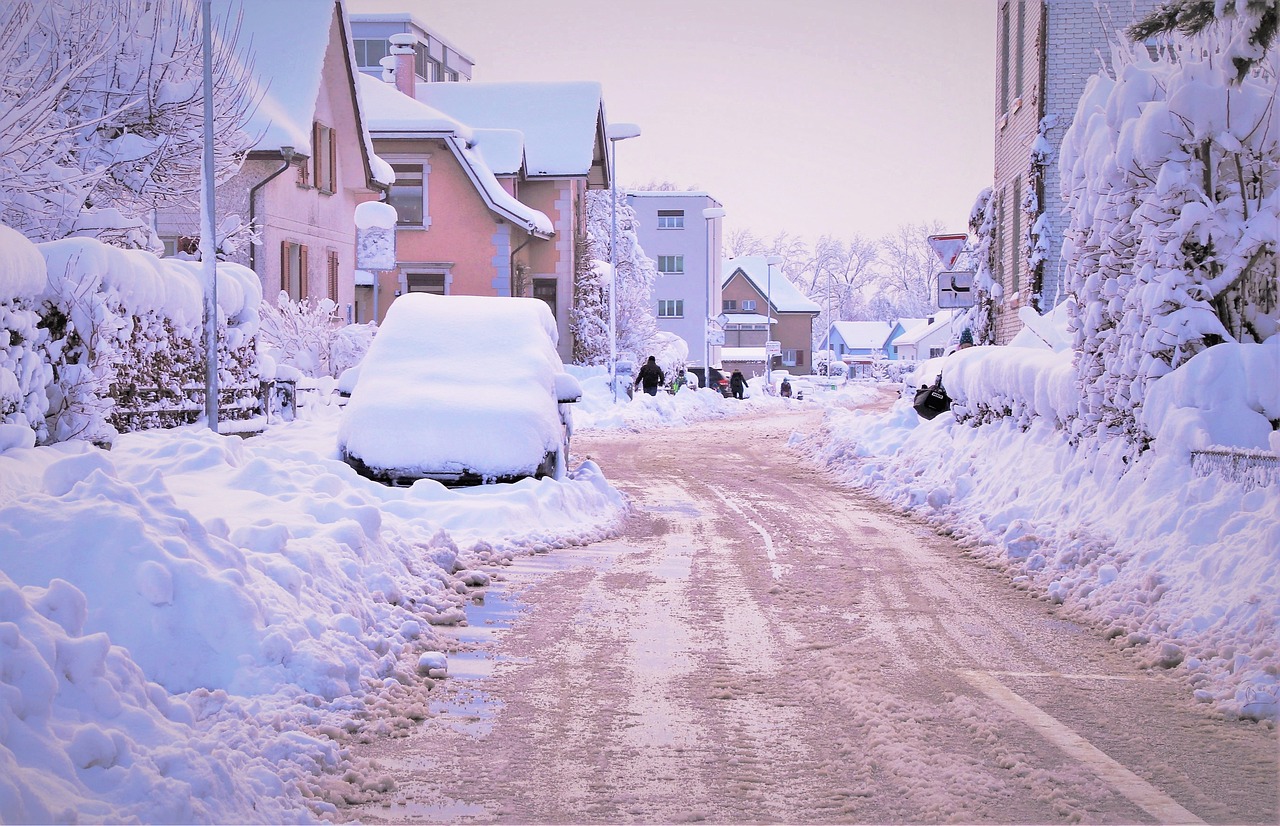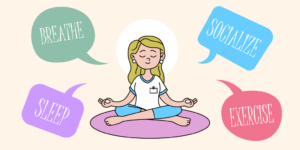The snow is piling up outside your window. One inch, three inches, six inches… The forecast says the snow will continue until 2:00 p.m. tomorrow. Instantly, your mind shouts, “SNOW DAY!” The superintendent of the school district sends out an email. You’re but a click away from a spontaneous break, then you read the words “remote learning day.” You stare dejectedly at your screen, wondering if Covid-19 has brought about the end of the beloved snow day.
Another unfortunate byproduct of the coronavirus pandemic, remote learning days are school days that are completed virtually due to weather or other circumstances. This past school year, we have seen many schools, including some in New Hampshire, adopt remote learning days in place of snow days. There are many benefits to this new type of school day, as well as drawbacks. Here is a list of some pros and cons to remote learning days.
Pros of Remote Learning Days
- One of the main reasons families don’t always welcome snow days is because each snow day means one less day of summer. Luckily, the Bedford School District has embraced a new policy which allows for five snow days before impacting the date of the last day of school. For the schools that do not enjoy this policy—and for Bedford after five snow days—it is helpful to be able to complete a school day in bad weather conditions. This keeps the academic calendar on track and allows for a nice long summer vacation.
- The fewer days off, the fewer gaps between lessons, allowing for more progressive learning and higher achievement for students. According to Government Executive, “When schools close because of inclement weather, it affects students’ learning. For instance, research in Colorado, Maryland and Virginia has shown that each additional inch of snow led to less continuity of learning, which in turn made it less likely that elementary school students would pass math assessments.” If school could go uninterrupted, even in the face of snowy weather, kids could very well benefit in their learning and performance.
- The pandemic forced many schools into remote learning, and from this experience, we have learned the successes and failures of the virtual setting, meaning that remote learning days are capable of being truly effective now more than ever, ensuring greater success for students when under these circumstances. Of course, it should be noted that every student is different, and for some, the remote environment will never equate to an in-person class.
- Remote learning days mean a continuation of school, making the decision to call a remote learning day much easier than the decision to call a snow day. A snow day may mean fun for us kids, but for our parents (especially those with younger children), it can mean a day of unplanned child-entertaining, plus work. It also (traditionally) means one less day of summer, making it a really tough choice for the superintendent. There is a lot of pressure to not call a snow day to allow for the normal, anticipated routine of a school day. Remote learning days keep this structure in place, just at home, and they don’t impact the length of summer, making them a much easier option to implement in comparison to snow days.
Cons of Remote Learning Days
- Kids don’t want to do schoolwork when they are at home, it’s as simple as that. Little kids especially struggle in this environment, making snow days a better option for them.
- Snow days are magical gifts that produce some of the greatest memories for children, and they are well worth their consequences. The Chicago Tribune commented on this by sharing an email from Paul Druzinsky, “head of school at the Avery Coonley School in Downers Grove,” that he sent to families in anticipation of a winter storm: “‘I believe now, more than ever, that snow days (which are generally rare) are times for children to have fun and create lifetime memories. Our students (and staff) work tremendously hard, and the rare snow day is something all children should experience. Especially in these unprecedented times. Life is too short! If we…do close, see it as a chance for sledding, hot chocolate, extra sleep and a special moment for your children.’” Druzinsky gets it—there is something special about snow days that makes them an extremely important experience for children. Let’s not deny future generations this privilege.
- Breaks in learning may not be the best for our education, but they are certainly valuable to our mental health. If Covid-19 proved anything, it’s that remote learning had detrimental effects on students’ social development and mental health. While one day of remote learning may not produce the same results, I strongly believe that unplanned days off are far more beneficial to our mental health than remote learning days are to our academic progress.
- Unlike remote learning days, snow days allow families and friends to spend unforgettable time together. Frequently, conflicting school, work, and extracurricular activity schedules prevent siblings from enjoying each other’s company, especially in high school. Snow days allow siblings of all ages to have one day where they can simply be together. Even something as ordinary as eating lunch together can go a long way when it comes to developing these unique and vital relationships. Parents and children that normally don’t see each other for long periods of time have a chance to make some priceless memories together. Even friends and neighbors are able to appreciate the gift of a snow day. We must continue to share in the love and joy of snow days, even in the presence of virtual opportunities.
There are surely many more reasons that support either side of this argument, but there is no doubt that remote learning days are becoming more common among schools. Some districts, especially in New York, have already announced that they will strictly be using remote learning days in place of snow days. Those poor children… Is this the end of the snow day as we know it? Has Covid-19’s virtual schooling eliminated our spontaneous days of fun? For now, it seems not. Many schools are still utilizing snow days to ensure equal learning opportunities for all students and to protect their mental health. Let’s hope that Bedford continues to support this perspective.
Sorber, Nathan M. “Has Remote Learning Buried the Snow Day? Depends On Where You Live.” Government Executive, 29 Dec. 2022, www.govexec.com/workforce/2022/12/has-remote-learning-buried-snow-day-depends-where-you-live/380873/.
Stevens, Heidi. “Column: Will Remote Learning Spell the End of Snow Days? I Sure Hope Not.” Chicago Tribune, 26 Jan. 2021, www.chicagotribune.com/columns/heidi-stevens/ct-heidi-stevens-will-covid-end-snow-days-for-good-0126-20210126-f6l5x2gelva3vh2m4tkhw7ivqu-story.html.









Be First to Comment